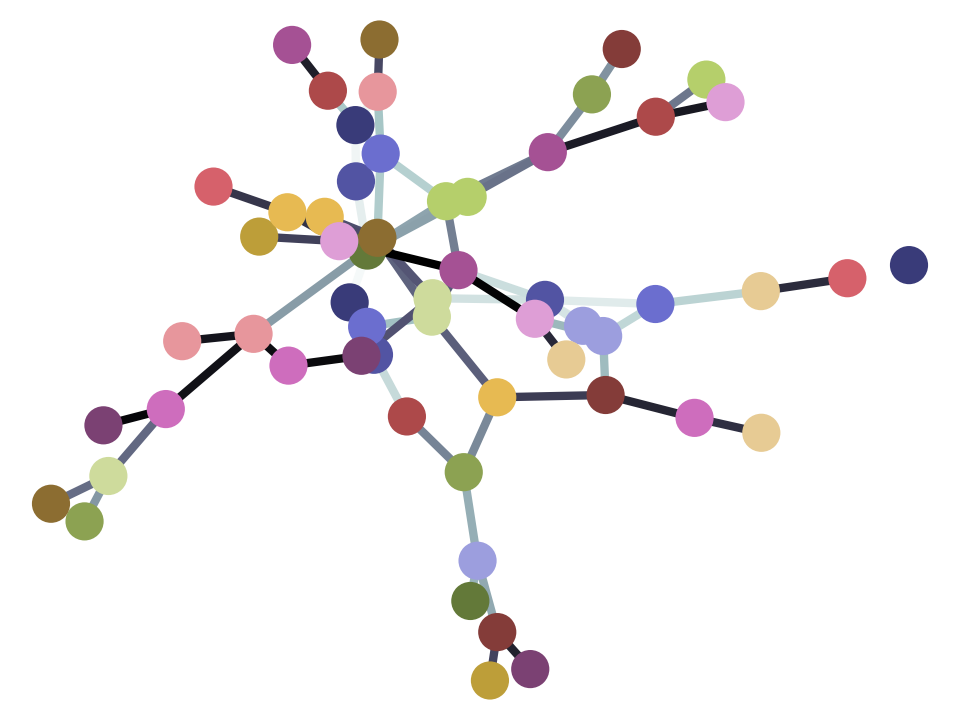Why the differences from the mean must add to zero.#
Have a look at this little bit of algebra to see why.
Imagine I have four values \(a, b, c, d\).
Call the mean \(\mu\). As we know:
\[
\mu = (a + b + c + d) / 4
\]
Now subtract \(\mu\) from every one of \(a, b, c, d\), and add up the result. We get;
\[\begin{split}
a - \mu + \\
b - \mu + \\
c - \mu + \\
d - \mu = \\
(a + b + c + d) - 4 \mu
\end{split}\]
But:
\[\begin{split}
4 \mu = \\
4 (a + b + c + d) / 4 \\
= a + b + c + d
\end{split}\]
So:
\[\begin{split}
a - \mu + \\
b - \mu + \\
c - \mu + \\
d - \mu = \\
(a + b + c + d) - 4 \mu = \\
(a + b + c + d) - (a + b + c + d) = \\
0
\end{split}\]
